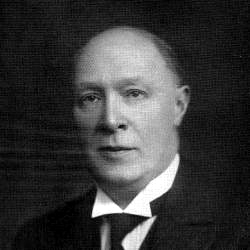Western Union
Spence, Lewis
James Lewis Thomas Chalmers Spence (1874-1955) attended Edinburgh University, after which he began a career in journalism that included a stint as sub-editor of The Scotsman. His book publishing began in 1908 with the first English translation of the sacred Mayan book Popul Vuh [257], followed by A  Dictionary of Mythology, so eventually, he had over forty works to his name. He was a keen Scottish Nationalist and stood for parliament in 1929. He was a founder member of the political movement that later evolved into today’s Scottish National Party (SNP).
Dictionary of Mythology, so eventually, he had over forty works to his name. He was a keen Scottish Nationalist and stood for parliament in 1929. He was a founder member of the political movement that later evolved into today’s Scottish National Party (SNP).
Among his literary output, which included mythology, occultism and poetry, were five books relating to Atlantis [256,258,259,260 262]. In 1932 he was editor of the Atlantis Quarterly magazine. He corresponded with Percy Fawcett and Sir Arthur Conan Doyle, advising the latter on the subject of Atlantis preceding the writing of The Maracot Deep and recently republished as Atlantis – Discovering the Lost City [235], another example of cynical publishing!
Spence at one point became the Chosen Chief of British Druidism and there is a claim that he was a member of at least one continental Rosicrucian organisation, although this report may be the result of confusion with H. Spencer Lewis, an American Rosicrucian. In 1941 he wrote [261] about the occult and the war, then raging in Europe. In that book he argued that the war was the result of a satanic conspiracy centred in Munich and the Baltic States. The following year he wrote [262] of his view that Atlantis had been destroyed as a form of divine retribution and that Europe was in danger of a similar fate.
His books were very popular with the general public but scorned by the scientific establishment, whom Spence mockingly referred to as “The Tape Measure School”. In truth his theories relating to Atlantis were highly speculative and often based on rather tenuous links. Spence believed that Atlantis was situated in the Atlantic and linked by a land bridge with the Yucatan Peninsula and that after the destruction of Atlantis, 13,000 years ago, the Atlantean refugees fled across this landbridge and are now recognised as the ancient Maya. A recent website(d) supports the idea of a landbridge from Cuba to the Yucatan Peninsula.
Spence believed that the ancient traditions of Britain and Ireland contain memories of Atlantis. An article of his on the subject can be found on the Internet.>>In a 1926 article in The Occult Review Spence identified Arthurian Avalon as Plato’s Atlantis(b).<<
In The Problem of Atlantis [258.205] Spence quoted a report that allegedly came from the Western Union Telegraph Company, which claimed that while searching in the Atlantic for a lost cable in 1923 that when taking soundings at the exact same spot where it had been laid twenty-five years before they found that the ocean bed had risen nearly two and a quarter miles. The account was quoted widely; however, not long afterwards, Robert B. Stacy-Judd made direct enquiries of his own to Western Union and the U.S. Navy, who denied knowledge of any such report[607.47]! It would be interesting to know the source of this ‘fake news’.
Spence’s The History of Atlantis [259] can now be downloaded or read online(c). In this book Spence offers his own composite translation of the Atlantis texts based on the English and French translations of Jowett, Archer-Hind, Jolibois and Negris.
A 2005 edition of the book from Barnes & Noble has an introduction by Professor Trevor Palmer.
Sprague de Camp in his Lost Continents [194] chose Spence as one of “the few sane and sober writers on the subject” of Atlantis and then proceeded to debunk much of what Spence wrote. [p.95].
It appears that among others, Spence’s work inspired the backdrop to a number of works by the pulp fiction writer, Robert E. Howard(e), who is perhaps best known as the creator of Conan the Barbarian.
(b) The Occult Review, Vol. XLIII No.1, Jan.1926 *
(c) https://www.archive.org/details/historyofatlanti00spenuoft
